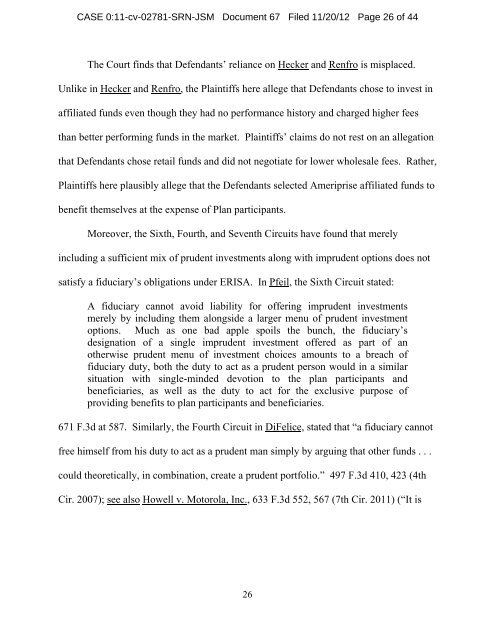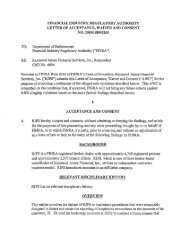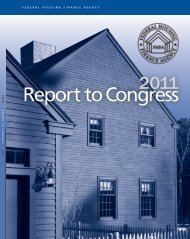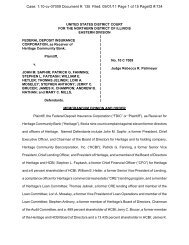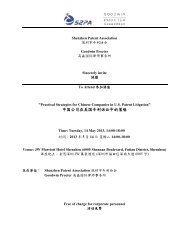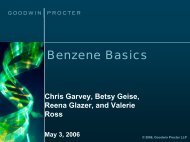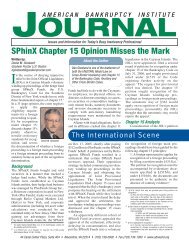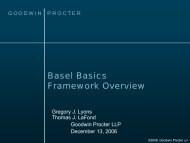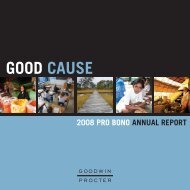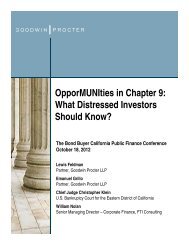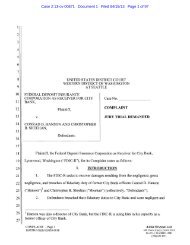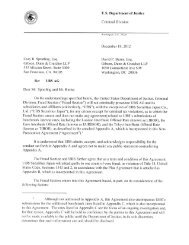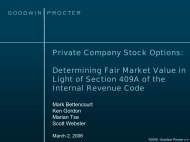Krueger v. Ameriprise Financial, Inc. - Blog
Krueger v. Ameriprise Financial, Inc. - Blog
Krueger v. Ameriprise Financial, Inc. - Blog
Create successful ePaper yourself
Turn your PDF publications into a flip-book with our unique Google optimized e-Paper software.
CASE 0:11-cv-02781-SRN-JSM Document 67 Filed 11/20/12 Page 26 of 44<br />
The Court finds that Defendants’ reliance on Hecker and Renfro is misplaced.<br />
Unlike in Hecker and Renfro, the Plaintiffs here allege that Defendants chose to invest in<br />
affiliated funds even though they had no performance history and charged higher fees<br />
than better performing funds in the market. Plaintiffs’ claims do not rest on an allegation<br />
that Defendants chose retail funds and did not negotiate for lower wholesale fees. Rather,<br />
Plaintiffs here plausibly allege that the Defendants selected <strong>Ameriprise</strong> affiliated funds to<br />
benefit themselves at the expense of Plan participants.<br />
Moreover, the Sixth, Fourth, and Seventh Circuits have found that merely<br />
including a sufficient mix of prudent investments along with imprudent options does not<br />
satisfy a fiduciary’s obligations under ERISA. In Pfeil, the Sixth Circuit stated:<br />
A fiduciary cannot avoid liability for offering imprudent investments<br />
merely by including them alongside a larger menu of prudent investment<br />
options. Much as one bad apple spoils the bunch, the fiduciary’s<br />
designation of a single imprudent investment offered as part of an<br />
otherwise prudent menu of investment choices amounts to a breach of<br />
fiduciary duty, both the duty to act as a prudent person would in a similar<br />
situation with single-minded devotion to the plan participants and<br />
beneficiaries, as well as the duty to act for the exclusive purpose of<br />
providing benefits to plan participants and beneficiaries.<br />
671 F.3d at 587. Similarly, the Fourth Circuit in DiFelice, stated that “a fiduciary cannot<br />
free himself from his duty to act as a prudent man simply by arguing that other funds . . .<br />
could theoretically, in combination, create a prudent portfolio.” 497 F.3d 410, 423 (4th<br />
Cir. 2007); see also Howell v. Motorola, <strong>Inc</strong>., 633 F.3d 552, 567 (7th Cir. 2011) (“It is<br />
26


